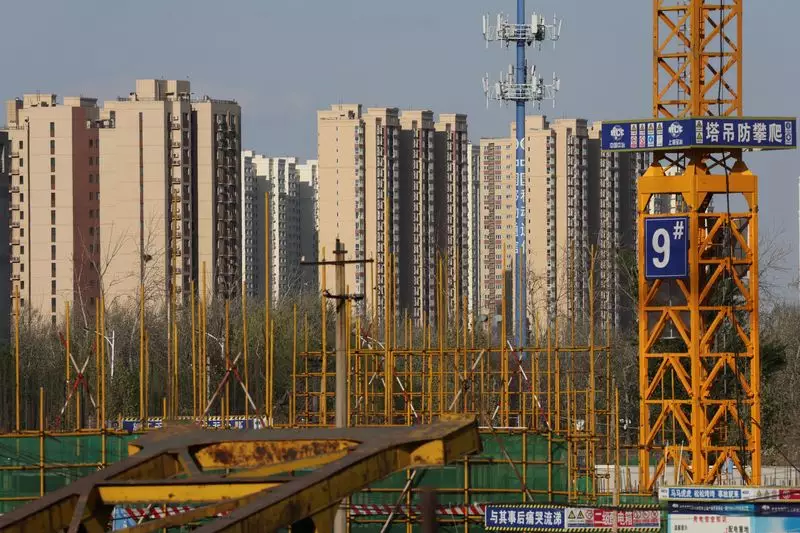In August 2023, China’s housing market experienced a significant downturn, with new home prices witnessing the steepest decline seen in over nine years. Data from the National Bureau of Statistics reveals that new home prices fell by 5.3% compared to the previous year, reflecting a worsening situation from the 4.9% drop recorded in July. This continuous erosion in property values underscores a pervasive crisis within the sector, with new home prices experiencing a consistent decline for four consecutive months, dropping by 0.7% in August alone. This trend points to a deeper malaise in an industry that is pivotal to China’s broader economy.
Several interrelated factors have contributed to the continuous decline in home prices. The property sector is plagued by heavily indebted developers, many of whom are struggling to complete projects, which in turn diminishes buyer confidence. As a result, countless potential homeowners are hesitant to invest in properties that may never come to fruition. This uncertainty is compounded by the broader economic strain in China, with a government growth target of 5% for the year now in jeopardy.
Despite the implementation of supportive measures by Chinese policymakers designed to rejuvenate the market—such as reducing mortgage rates and lowering home-buying costs—these efforts have failed to translate into a meaningful recovery. Prominent analysts like Zhang Dawei from Centaline suggest that the path toward a stabilized market is likely to be lengthy, with improvements in buyer demand and confidence projected to take considerable time.
The outlook for China’s real estate market remains bleak, with forecasts predicting continued declines in home prices. A recent Reuters poll estimates an 8.5% drop in home prices is expected in 2024, followed by a further decline of 3.9% in 2025. These projections highlight the ongoing struggles facing the real estate sector, as it attempts to navigate through a storm of adversity. The situation exemplifies the difficulty of restoring stability in a market characterized by waning buyer interest and high levels of unsold inventory, particularly in smaller cities that lack the same level of demand as larger urban centers.
The fall in property investment, which decreased by 10.2%, alongside an alarming 18% slump in home sales during the first eight months of the year, points to a systemic issue within the industry. While major cities have seen a slight uptick in demand due to government initiatives, the overall picture remains troubling, particularly in regions with fewer restrictions and an abundance of unsold homes.
The Role of Government Intervention
In response to the escalating crisis, there are growing calls for more robust government intervention. Analysts suggest that Beijing could eventually act as the “builder of last resort,” directly funding delayed residential projects that have been pre-sold. This potential shift underscores the seriousness of the current predicament, as the government seeks to stabilize a cornerstone of the economy that has been integral to China’s growth over the past decades.
Moreover, the introduction of rate cuts, particularly targeting over $5 trillion in outstanding mortgages, is being considered as a strategy to shore up consumer confidence. Economists predict that adjustments, including a reduction in the five-year Loan Prime Rate and a cut to the reserve requirement ratio (RRR), may soon be on the horizon. These measures could provide much-needed relief to both builders and buyers, but the effectiveness of such policies in reversing the prevailing decline remains uncertain.
Ultimately, China’s real estate market is at a critical juncture. The problems besetting the industry are deeply rooted and are not likely to be resolved in the short term. While government initiatives may assist in eventually stabilizing the market, the fundamental issues of high debt levels, incomplete developments, and declining buyer confidence pose significant challenges. Until these structural problems are addressed, the Chinese property market may continue to drift further into a quagmire, affecting the broader economy and hindering growth targets. The road to recovery will likely be long and arduous, requiring not only policy adjustments but also a paradigm shift in how the real estate sector operates.

